
THE VOICE OF INTERNATIONAL LITHUANIA
|
VilNews has its own Google archive! Type a word in the above search box to find any article.
You can also follow us on Facebook. We have two different pages. Click to open and join.
|
Author Archive
First-time event in Chicago this Sunday, April 15, to address lingering issues affecting Lithuanian-Jewish relations
- Posted by - (24) Comment
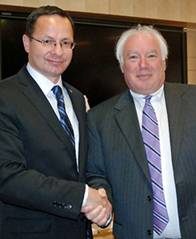
Zygimantas Pavilionis, Lithuanian ambassador to the U.S. (left), and Harley Felstein of the Lithuanian Heritage Project
Organizer: The Sunflower Project: A Jewish Lithuanian Heritage Project
Harley Felstein, project founder
Where: The Hyatt Lodge, 2815 Jorie Blvd., Oak Brook, Illinois 60523
When: 8-9 a.m. Sunday, April 15, 2012
Top-level individuals representing the Lithuanian government, Lithuanian-American groups, and members of the Jewish community, will be gathering for the first time in Chicago in an effort to begin to address lingering issues affecting Lithuanian-Jewish relations. The meeting is the second of its kind nationally -- the first was in Washington in the fall. The gatherings are the initial stages of an exciting new endeavor, the Sunflower Project, a Jewish Lithuanian Heritage Project, recently established as a means to reconnect Lithuanian Jews and their descendants in the Diaspora to their Lithuanian roots, support a revival of Jewish history and culture in Lithuania, further awareness of these efforts, and foster positive interest in Lithuanian Jews and Lithuania among American Jews. Ultimately, the Sunflower Project seeks to transform and positively influence the nature of Lithuanian-Jewish relations.
The Lithuanian Embassy in the U.S. and Consular officials as well as Harley Felstein, the founder of the Sunflower Project, have initiated many cultural activities already this year and have plans for in coming months.
Attendees will include, among others:
- 17 honorary consuls to Lithuania from across North America.
- Lithuanian Ambassador to the United States Zygimantas Pavilionis
- Lithuanian Ambassador to Canada
- Lithuanian consulate generals in Mexico City, New York, and Chicago
- Michael Kotzin, Senior Counselor to the President of the Jewish Federation of Metropolitan Chicago
- Steve Dishler, Jewish Community Relations Council of Chicago’s
- Director of International Affairs AJC Chicago Director Dan Elbaum
- Eugene Steingold, a Chicago lawyer born in Vilnius
- Alexander Domanskis, who is affiliated with the Lithuanian Foundation based in Chicago
- Stanley Balzekas, Jr., President and Founder of the Balzekas Museum of Lithuanian Culture in Chicago; board member of the Lithuanian American Council
- Harley Felstein, Sunflower Project founder, based in Washington
Contact: Samantha Friedman, Rabinowitz/Dorf Communications
(202) 265-3000; (202) 215-9260 (c); samantha@rabinowitz-dorf.com
- Bookmark :
- Digg
- del.icio.us
- Stumbleupon
- Redit it
The paperback of “Between Shades of Gray” has made the New York Times Best Seller list. HOORAY!!!!
- Posted by - (0) Comment

Between Shades of Gray was originally intended as a young adult novel, but there have been several adult publications. In an interview with Thirst for Fiction, Ruta Sepetys said that the reason she intended Between Shades of Gray to be a young adult novel was because she met many survivors in Lithuania who were themselves teenagers during the deportations, and had a greater will to live than many of their adult counterparts at the time.
- Bookmark :
- Digg
- del.icio.us
- Stumbleupon
- Redit it

Text: Aage Myhre
International Lithuania got its “flying start” already in 1323, when Grand Duke Gediminas founded Vilnius as Lithuania’s capital city, and immediately decided to invite merchants, craftsmen, bankers, farmers, and soldiers from all Europe to come to the new capital, guaranteeing all freedom of beliefs and good working conditions. Vilnius became international, though with less of German or Scandinavian influence, as one could expect, rather influenced by Rome – greatly different from the other two Baltic capitals.
Below is our brief presentation of some main waves of immigration to Lithuania, and the role foreign nations and cultures have had here.
Russians

On Didzioji Street you can see St Nikolay Orthodox Church in
original yellow colour. Built in 1514. In 1609-1827 it belonged to Uniates
order. Then, in Russia Empire times, the church was re-modelled.
Russian culture is a very important part of the polyphonic culture of Lithuania. It is characterized by professional forms of modern urban culture - theatre, music, and art. Two stars of Russian theatre are connected with Lithuania - Vera Komisarzhevskaya and Vasily Kachalov. Literature occupies a special place. It was created by people of different aesthetic orientations, religious backgrounds, and ethnic origins: Pavel Kukolnik, who was of Austrian ancestry, Vasily von Rotkirch, who was descended from a line of German knights, Aleksander Navrotsky, who was born in St. Petersburg, and Aleksander Zhirkevich, who was an heir to nobles of the Grand Duchy of Lithuania. Diverse in genre and theme, fables, tragedies and dramas, poems, novellas and short stories, sketches and memoirs make up a rich library. Between the world wars important contributions were made to the cultural development of Lithuania by the artist Mstislav Dobuzhinsky, the opera singer and director Teofan Pavlovsky, the writer and journalist Arkady Bukhov, the culture historian and philosopher Lev Karsavin, and the historian Ivan Lappo. Also noteworthy in the Russian literary life of Vilnius were such celebrities as Vyacheslav Bogdanovich and Dorofei Bokhan as well as the poets Vasily Selivanov and Konstantin Olenin.
This heritage is being discovered anew by the Russians of Lithuania (roughly 308,000 people, who make up 8.7 percent of the total population of the country). It is valuable as a fruitful experience of cultural interaction.
Tatars

Tatar
Mosque in Nemėžis, near Vilnius.
The Tatars are a unique ethnic group currently living in Lithuania, in the western part of Belarus, and along the eastern border of Poland. During the 14th-16th centuries their ancestors settled in the Grand Duchy of Lithuania.
Lithuanian Tatars are descended from the Golden Horde and the Crimean Khanate. Their distinctive community, although separated from its Tatar-Turkic roots and surrounded by a foreign world, was able to preserve the culture and characteristics of their ancestors as well as their national and religious identity. For various reasons Lithuanian Tatars lost their language rather quickly, but on account of their profound attachment to Islam, they have preserved their national consciousness for 600 years. The rulers of Lithuania and Poland have always been tolerant of the Tatar community and its religion. In these lands the Tatars built mosques and freely practiced their religion. They were granted various rights and privileges; the Tatar aristocracy had the same status as the nobility of Lithuania and Poland. For centuries Lithuanian Tatars maintained the image of fearless and capable warriors; their main activity was warfare. During various periods the Tatar community found its place in the life and liberation struggles of the Lithuanian and Polish nations. At the beginning of the 20th century national struggles for independence also roused the Tatar intelligentsia to a national reawakening; educated Tatars appeared in various fields, in learning and in warfare. Encouraged by the movement of national rebirth, Polish scholars of Tatar ancestry have begun to study the history of Lithuanian Tatars.
During the period of sovietisation, Lithuanian Tatars lost much in the area of spiritual culture and religion. The national rebirth of Lithuania and restoration of independence at the end of the 20th century created the conditions for Tatar communities to return to their ethnic culture, to their roots, to the sources of their national life.
In 1988 the Lithuanian Tatar Cultural Society was re-established, and with it - the social activity of Tatar communities. In 1997 the 600th anniversary of the settlement of Tatars and Karaims in the Grand Duchy of Lithuania was celebrated. In 1998 a spiritual centre, or muftiate, was re-established for Lithuania's Sunni Muslims.
Karaims

Karaim
temple, a ‘Kenasa’, in Trakai 30 km from Vilnius.
The Karaims are the smallest ethnic group in Lithuania, inextricably linked with the Crimean victories of Grand Duke Gediminas who brought 380 Karaim families to his castle in Trakai back in 1397.
According to the ethno statistical data collected in 1997, there are 257 Karaims living in Lithuania. Their social activity is directed, first and foremost, toward the preservation of their distinctive culture, language, customs, and religion.
During the 600 years that they have lived in Lithuania, this small Turkic people have preserved a strong national consciousness. A rather inward-looking community life, firm moral principles based on the teachings of the Karaim religion, and steadfast adherence to tradition - all these things have contributed to the survival of the people, of their basic characteristics, such as language, customs, and rituals, and thus, of their national identity. What also helped the Karaims of Lithuania survive under difficult conditions was the tolerance and respect for them expressed during all those centuries not only in the everyday contacts between people but also in the official state documents of various periods.
An exceptional period in the history of Lithuanian Karaims was the Soviet occupation, which thoroughly shook up the accustomed foundations of Karaim community life. The consequences of that time, which are still felt today, make it much more difficult for people to "return to their roots," to the rhythms of their national life.
Many world scholars are interested in the cultural heritage that Lithuanian Karaims have preserved to the present day. The still living Karaim language, which belongs to the West Kipchak subgroup of the Turkic family of languages, receives the most attention. It is being studied from several angles - as a language that has preserved rare old forms and words that have disappeared from other languages of the Turkic family and also as one that has borrowed and in its own way adapted some features of vocabulary and syntax from neighbouring languages (Lithuanian, Russian, and Polish).
Jews (Litvaks)

Vilna
Great Synagogue, destroyed/burned by the Nazis
and
later by the Soviets during/after WWII.
Vilnius was for centuries called „Jerusalem of the North“ , due to the fact that the Lithuanian Jews, known as “Litvaks”, had created a flourishing, diverse culture in the course of almost 700 years of their presence here.
The religious culture of Lithuanian Jews enriched the world Jewry. A wealth of famous scholars of Judaism lived and worked in Lithuania. The Vilnius Gaon Eliyahu was one of the most prominent Talmudists of all times. The spiritual academies - yeshivas - attended by young men from many countries were known throughout the world. In different periods of time there were over 250 synagogues in Vilnius.
Litvaks made a weighty contribution to the development of Judaism, and cherished a highly developed secular culture, which enriched not only the culture of world Jewry, but also that of Lithuania, as well as the whole world. Litvaks spoke Yiddish and created outstanding literary works.
The Lithuanian Yiddish is considered to be the fundament of the literary Yiddish language. Books on Judaic, published in Vilnius, spread all over the world. Libraries in Vilnius were famous for the wealth and value of books kept there. The world known Judaic scientific institutions, first of all, the Jewish Scientific Institute YIVO, were situated in Vilnius. Jasha Heifets, Zhak Lipshits, Chajim Soutine and many others enriched the world of art and music. Litvaks - emigrants from Lithuania became prominent scientists, public figures, politicians in Israel, the USA, South Africa. The Nazi regime annihilated Lithuanian Jews and their culture. Less than 10% of Jews survived. This practically destroyed the remnants of the Litvak legacy.
Italians
|
|
|
|
|
Grand Duke |
The grand Duchess, Italian Princess Bona Sforza |
The Lithuanian Royal Palace
was designed
|
Italy had
an extraordinary, but still little known role in and for Lithuania over many
centuries.
When Lithuania’s Grand Duke, Sigismund the Old in 1518
married the Italian Princess Bona Sforza, this became an
Italy was involved in and with Vilnius already from its very first days as a capital city in the early 14th century. Even the name “Vilnius” was used for the first time when Grand Duke Gediminas in 1323 wrote to Pope John XXII asking for support in Christianizing the duchy.
Throughout the Renaissance, when Italy was a trading centre and a melting pot for the world’s greatest civilizations, also Vilnius became a Renaissance centre, competing with Florence and Milan. This development began when King Sigismund the Old (1467-1548) married Bona Sforza (princess of Milan and Bari) and returned to live in Vilnius in 1518. They created together an Italian community within the court and, under the influence of the Queen, Italian culture became the preoccupation of the city’s elite; macheroni, skryliai, and even the confection marcipanus became staples among the cogniscenti; and life at court became a series of cultural events, with rich noblemen competing for extravagance. In 1532 the Vilnius Cathedral Orchestra was already performing with the Queen singing alto.
The education of their son, King Sigismund August (1520-72), was the responsibility of a Sicilian, Jonas Silvijus Amatas, between 1529 and 1537. King Sigismund August founded Lithuania’s first library in 1547, and sent scholars and traders across Europe to assemble volumes of practical and historical value.
Italians played a very important role in the development of architecture and art in Lithuania till the end of the 18th century, and it has been said that Vilnius is “the world’s most Italian city outside Italy”.
Germans

Building in Vokiečių (German) street in
Vilnius Old Town, with the gate to the Evangelical Lutheran Church, originally
built by Germans in 1555.
It has been a long history of cooperation between Germany and Lithuania. History tells us that when Grand Duke Gediminas 700 years ago began the restoration of Lithuania, this was done with the help of German colonists, and several cities were founded with the German systems of laws. When Vilnius in 1323 was named a city, this was legalized on background of the so-called “Magdeburg Rights”. German craftsmen and merchants, who had been invited to Lithuania by Gediminas and his successors, may have been the first ones to settle in Vokieciu gatve (the German Street). In the 16th century the German merchants built their beautiful and still existing Lutheran church here. Other Germans came when the Hanseatic League helped to intensify commercial and trade relations with the countries of the Baltic Sea and their neighbours.
Poles

The Polish (Holy Spirit) church at
Dominikonu street, Vilnius
The history of the Poles in Lithuania mainly dates back to the 14th century in which Lithuania made an Alliance with Poland that developed into a Polish-Lithuanian Commonwealth (1569 –1795). In the period of the Polish-Lithuanian Commonwealth Polish culture was mainly dominant in the Vilnius district. After having belonged to the Russian Empire from 1795 onwards the Vilnius district became part of Poland after World War I. It was returned to Lithuania in 1939 as a result of the Molotov-Ribbentrop-Pact. In 1697 when the Sejm/Seimas enacted a bill of rights that resulted in changing the language of the Grand Duchy of Lithuania into Polish, the prestige of the Polish language (the language of the ‘small nobility’, the so-called szlachta) increased as opposed to Lithuanian as the language of the peasantry. The higher prestige of Polish as well as the usage of Polish by the Catholic Church led to the “Polonisation” of part of the Lithuanian population mainly in the Vilnius region. As several linguists put it, the distinction between Poles and Lithuanians was almost strictly based on economic status and religion. Polish identification was a reflection of status and was independent of ethnic identity.
The Poles live all over Lithuania but the largest groups (90% of the Poles) can be found in Vilnius (18.7% of the inhabitants are Poles), and further on in the Vilnius district and the districts of Švenčionys, Trakai, Šalčininkai and Varėna. Some Poles also live near the Polish-Lithuanian border.
According to the 2001 census the Polish nationality is the largest minority in Lithuania. 234,989 people or 6.74% of the total population consider themselves to be Poles.
Today‘s International Community

Lithuania is again a free country with open borders for people from around the world. The latest twenty years have proved that the ancient ideals of keeping up this country as an international melting pot are returning. Approximately four million visitors are arriving here now, on an annual basis, and people from more than 50 countries have decided to settle here since 1991. A new, multicultural society is developing. The fifty year of isolation under the Soviet regime is irrevocably over, and a new era for Lithuania’s international community is already here…
- Bookmark :
- Digg
- del.icio.us
- Stumbleupon
- Redit it
- Posted by - (0) Comment
Lithuania’s ambassador to the U.S.:
We will never forget or underestimate the role of Lithuanian Americans in our struggle for independence
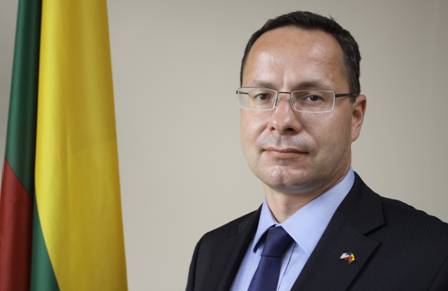
Lithuania’s ambassador to the United States, Žygimantas Pavilionis
Ambassador Žygimantas Pavilionis interviewed by Aage Myhre
Ambassador, you represent Lithuania in the United States, a country where around one million Lithuanians and people of Lithuanian descent live, as citizens of the United States. Are you to a certain degree also their ambassador?
As an ambassador of the Republic of Lithuania, I represent, first of all, interests of my country and my fellow citizens. Not all Lithuanian Americans are citizens of Lithuania, but they, nevertheless, kept close ties to their Homeland and helped greatly to keep memories of independent and free Lithuania alive. All the Lithuanians no matter where their live are equally important share of our nation. This is not only the official position of our Government, but also my personal idea I always had and believed in. Therefore, yes, I am to certain degree their ambassador as well.
Lithuanian-Americans played a significant role in the postwar years, until Lithuania's recovered independence in 1990-1991, by constantly exerting pressure on the U.S. President and leaders in other Western countries so that they would pressure the Soviet Union to allow the Baltic countries freedom after the Soviet occupation taking place during World War II. Now, as more than 20 years have passed since the freedom bells rang, the question is whether the Lithuanian-Americans have a role to play also today? See our article https://vilnews.com/?p=8899
We in Lithuania will never forget and never underestimate the role of Lithuanian Americans in our struggle for independence. It will remain an indispensable part of our history. However, it sounds sometimes a bit strange when I hear that the mission of our countrymen abroad might be over. Not at all! Free, democratic and Western minded Lithuania we fought for and we have now is not the fact that will last forever by itself. On the contrary, we must remember that state-building is a continuous process, which requires our personal everyday efforts. So there are a lot of challenges both in our foreign and domestic policy we are facing now where the help and support from the Lithuanian diaspora is of vital importance. Economy, energy, security issues, education, social affairs– those and many other areas where we need our common work on it. To be more concrete and to illustrate what has been said I would like to name at least two significant projects which our Embassy is going to undertake together with the Lithuanian community in US this year - NATO Summit in May and World Lithuanian Economic Forum in September. Both evens will take place in Chicago, but we do expect an active engagement of Lithuanians from all over United States in them.
“The majority, I believe, are disappointed and discouraged with the present president’s seemingly unfriendly view toward Lithuanian-Americans and others abroad.” This said Regina Narusiene, President of the World Lithuanian Community, in a recent interview (see https://vilnews.com/?p=6704), based on a comment referred to in The Baltic Times, where President Grybauskaite should have said that most prominent U.S. Lithuanian emigres, instead of focusing on developing U.S. - Lithuanian business ties, prefer providing political advice to the Lithuanian authorities, which may not be that necessary nowadays. She was supposedly “disappointed by Lithuanian emigres’ inability to attract U.S.-based investments to Lithuania.” Here in VilNews we often hear Lithuanian-Americans say they do not feel welcome to their home country, and that Lithuania's current president seems to antagonize them. What are the ambassador's comments to this?
I would not like to comment the words of President which I haven’t heard myself, but as far as I’m familiar with the position of President Grybauskaite towards Lithuanian diaspora I could only presume that these words were taken out of the context and that the President didn’t mean at all anything that could be interpreted as an “unfriendly view toward Lithuanian-Americans and others abroad”…
Having said that I might add that Lithuanians are well known in the U.S. for their persistence, hard and committed work and interesting achievements. We know Lithuanians from every generation who became successful politicians, businessmen, artists, social workers, etc. Just look at our honorary consuls – people like Krista Bard or Daiva Navarette are known in their areas of expertise. We also know a lot of Lithuanians from a younger generation who are well established in universities, research labs, have created their businesses. And some of them very successfully extended their business in Lithuania. Do you know that the company “VPA Logistics”, which operate the block train corridor project from Klaipeda to China, called “Sun”, was created by American-Lithuanians from New Jersey? And this project was developed with a great support of the government and the President itself. And there are much more concrete examples were Lithuanian Americans has invested, developed business in Lithuania or with Lithuania, but they have not yet very much advertised that.
| VPA Logistics – excellent example of business venture established by a Lithuanian American Mr. Vytautas ‘Victor’ Paulius is the Lithuanian American who founded the New Jersey company VPA (Vytatuas Paulius Associates) in 1967. UAB VPA was established in Lithuania’s port city Klaipeda in 1996, currently owning & operating over 30,000 sq.m. (320,000 sq.ft.) of state of the art cold storage space located within the Port of Klaipeda and Laistu International Trade Center (LITC), adjacent to Klaipeda State Seaport. VPA Logistics is the company behind the new SUN TRAIN that operates between China and Klaipeda. |
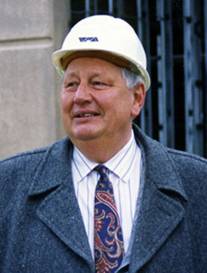 VYTAUTAS "VICTOR" PAULIUS |
To read more, go to our SECTION 11
- Bookmark :
- Digg
- del.icio.us
- Stumbleupon
- Redit it
- Posted by - (0) Comment
Lithuania’s ambassador to the U.S.:
We will never forget or underestimate the role of Lithuanian Americans in our struggle for independence

Lithuania’s ambassador to the United States, Žygimantas Pavilionis
Ambassador ŽygimantasPavilionis interviewed by Aage Myhre
Ambassador, you represent Lithuania in the United States, a country where around one million Lithuanians and people of Lithuanian descent live, as citizens of the United States. Are you to a certain degree also their ambassador?
As an ambassador of the Republic of Lithuania, I represent, first of all, interests of my country and my fellow citizens. Not all Lithuanian Americans are citizens of Lithuania, but they, nevertheless, kept close ties to their Homeland and helped greatly to keep memories of independent and free Lithuania alive. All the Lithuanians no matter where their live are equally important share of our nation. This is not only the official position of our Government, but also my personal idea I always had and believed in. Therefore, yes, I am to certain degree their ambassador as well.
Lithuanian-Americans played a significant role in the post-war years, until Lithuania's recovered independence in 1990-1991, by constantly exerting pressure on the U.S. President and leaders in other Western countries so that they would
pressure the Soviet Union to allow the Baltic countries freedom after the Soviet occupation taking place during World War II. Now, as more than 20 years have passed since the freedom bells rang, the question is whether the Lithuanian-Americans have a role to play also today? See our article https://vilnews.com/?p=8899
We in Lithuania will never forget and never underestimate the role of Lithuanian Americans in our struggle for independence. It will remain an indispensable part of our history. However, it sounds sometimes a bit strange when I hear that the mission of our countrymen abroad might be over. Not at all! Free, democratic and Western minded Lithuania we fought for and we have now is not the fact that will last forever by itself. On the contrary, we must remember that state-building is a continuous process, which requires our personal everyday efforts. So there are a lot of challenges both in our foreign and domestic policy we are facing now where the help and support from the Lithuanian diaspora is of vital importance. Economy, energy, security issues, education, social affairs– those and many other areas where we need our common work on it. To be more concrete and to illustrate what has been said I would like to name at least two significant projects which our Embassy is going to undertake together with the Lithuanian community in US this year - NATO Summit in May and World Lithuanian Economic Forum in September. Both evens will take place in Chicago, but we do expect an active engagement of Lithuanians from all over United States in them.
“The majority, I believe, are disappointed and discouraged with the present president’s seemingly unfriendly view toward Lithuanian-Americans and others abroad.” This said Regina Narusiene, President of the World Lithuanian Community, in a recent interview (see https://vilnews.com/?p=6704), based on a comment referred to in The Baltic Times, where President Grybauskaite should have said that most prominent U.S. Lithuanian émigrés, instead of focusing on developing U.S. - Lithuanian business ties, prefer providing political advice to the Lithuanian authorities, which may not be that necessary nowadays. She was supposedly “disappointed by Lithuanian émigrés’ inability to attract U.S.-based investments to Lithuania.” Here in VilNews we often hear Lithuanian-Americans say they do not feel welcome to their
home country, and that Lithuania's current president seems to antagonize them. What are the ambassador's comments to this?
I would not like to comment the words of President which I haven’t heard myself, but as far as I’m familiar with the position of President Grybauskaite towards Lithuanian diaspora I could only presume that these words were taken out of the context and that the President didn’t mean at all anything that could be interpreted as an “unfriendly view toward Lithuanian-Americans and others abroad”…
Having said that I might add that Lithuanians are well known in the U.S. for their persistence, hard and committed work and interesting achievements. We know Lithuanians from every generation who became successful politicians, businessmen, artists, social workers, etc. Just look at our honorary consuls – people like Krista Bard or Daiva Navarette are known in their areas of expertise. We also know a lot of Lithuanians from a younger generation who are well established in universities, research labs, have created their businesses. And some of them very successfully extended their business in Lithuania. Do you know that the company “VPA Logistics”, which operate the block train corridor project from Klaipeda to China, called “Sun”, was created by American-Lithuanians from New Jersey? And this project was developed with a great support of the government and the President itself. And there are much more concrete examples were Lithuanian Americans has invested, developed business in Lithuania or with Lithuania, but they have not yet very much advertised that.
| VPA Logistics – excellent example of business venture established by a Lithuanian American Mr. Vytautas ‘Victor’ Paulius is the Lithuanian American who founded the New Jersey company VPA (Vytatuas Paulius Associates) in 1967. UAB VPA was established in Lithuania’s port city Klaipeda in 1996, currently owning & operating over 30,000 sq.m. (320,000 sq.ft.) of state of the art cold storage space located within the Port of Klaipeda and Laistu International Trade Center (LITC), adjacent to Klaipeda State Seaport. VPA Logistics is the company behind the new SUN TRAIN that operates between China and Klaipeda. |
 VYTAUTAS "VICTOR" PAULIUS |
In a meeting at your embassy in Washington last year, representatives of LAC (Lithuanian American Council) expressed their concern on a wide range of topics including Lithuania's developing energy policy, the country’s image in the international community, emigration issues and their demographic impact, the prospect of maintaining citizenship rights of recent immigrants, ongoing cooperation between organizations of the Diaspora and Lithuania, and minority issues in Lithuania. LAC representatives suggested that Lithuania would benefit significantly by availing itself of the expertise and knowledge found in the Diaspora communities in developing energy and security policies and a host of other areas such as environmental issues, ecology, medicine, economic development, and the promotion of improved interactions between the government and the people through non-governmental organizations (ref. https://vilnews.com/?p=5031). Has there been any official Lithuanian response to this?
The Embassy deals with various Lithuanian American organizations on a daily basis, including on issues that you just have mentioned. The meeting that you are referring to was held as a coordination meeting to compare our notes and to brief each other on the most important issues on which we should unite our efforts. As I already said, we greatly value the experience and experience that Lithuanians American can bring to their Homeland, and if there are concrete proposals or advices, we listen to them and use accordingly.
In November 2011, the Jewish Lithuanian Heritage Project hosted a roundtable “Think Tank” at your embassy. The theme of the discussion was, "A comprehensive Five Year plan to improve Lithuanian-Jewish relations: Cultivating Sunflowers." (ref. https://vilnews.com/?p=9949). In a response, one of our readers wrote: “Is this about the establishment of a new Judenrat to apologize for Lithuanian anti-Semitism? “If truth be told” having a holiday party at Lithuania’s D.C. Embassy is not revolutionary. What would be revolutionary would have been, and would be, is the prosecution of Lithuanian collaborators and SS members, the prosecution of today’s neo-Nazi youth groups, reinstatement of the ban against the display of the swastika and ending the noxious practice of the Uzgavenes holiday when people dress as Jews and beg on the street.” Harsh words?
Yes, words are harsh and a bit unfair as they fail to describe the whole picture of what’s happening in an attempt to confront the past. I recognize that the awakening process among Lithuanians has been a long one and is still ongoing, but no one can deny the progress that has been made. The Lithuanian government is committed to rehabilitating the heritage of Lithuanian Jewry, preserving the memory of those who perished in the Holocaust, and developing an educational program on the subject of the Holocaust so these atrocities would never happen again.
Let me be clear that Lithuania has never denied that there were those among us who collaborated with the occupying power of Nazi Germany and committed crimes against Lithuanian Jews. We know that we owe an immeasurable debt to our Jewish compatriots. The war crimes are never to be forgotten and never to be forgiven. Lithuania seeks to follow this path - all cases of genocide are meticulously investigated.
 |
ZYGIMANTAS PAVILIONIS (Phonetic: pa-vill-i-OH-nis) Ambassador of the Republic of Lithuania Ambassador Pavilionis joined the Ministry of Foreign Affairs in 1993, where he was instrumental in achieving Lithuanian accession into NATO and the European Union. Between 1993 and 2009, he has held various high-level positions in the Lithuanian MFA, most focused on Lithuania’s relationship with the European Union. Most recently Ambassador Pavilionis acted as Ambassador –at-Large and Chief Coordinator for Lithuania’s Presidency of the Community of Democracies and Chief Coordinator for Transatlantic relations. He has a Master’s Degree in Philosophy and Postgraduate Diploma in International Relations and Doctoral Studies. He pursued both degrees in Vilnius University, Lithuania. Pavilionis is married to Lina Pavilioniene and has four sons. |
- Bookmark :
- Digg
- del.icio.us
- Stumbleupon
- Redit it
The Lithuanian FBI boss and his famous sister
- Posted by - (0) Comment
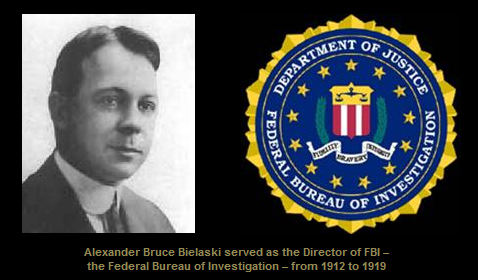
Many have heard of the legendary Director J. Edgar Hoover who led the FBI from1924 to 1972, but few have heard of the name Alexander Bruce Bielaski who served as the Director of the Federal Bureau of Investigation from 1912 to 1919. FBI was established in 1908, and Bielaski was its second Director.
Even fewer know that Bielaski was of Lithuanian origin. Although his family name was Polonized over time, his family roots can be traced directly back to Lithuania. His grandfather, Captain Alexander Bielaski (Beleskis) had been born on August 1, 1811, in Lithuania.
The FBI Director’s sister, Ruth Bielaski Shipley
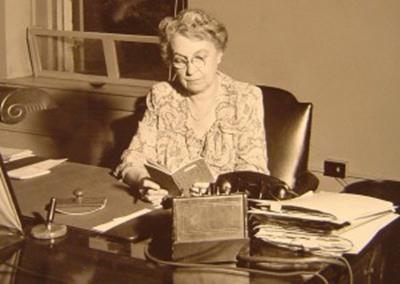
Ruth Bielaski Shipley
Another rather unknown story among Lithuanian Americans, is that Ruth Bielaski Shipley (April 20, 1885 – November 3, 1966) was head of the Passport Division of the United States Department of State for 27 years from 1928 to 1955. In 1951 TIME called her "The most invulnerable, most unfirable, most feared and most admired career woman in the U.S. Government."
- Bookmark :
- Digg
- del.icio.us
- Stumbleupon
- Redit it
The Lithuanian FBI boss and his famous sister
- Posted by - (3) Comment

Many have heard of the legendary Director J. Edgar Hoover who led the FBI from1924 to 1972, but few have heard of the name Alexander Bruce Bielaski who served as the Director of the Federal Bureau of Investigation from 1912 to 1919. FBI was established in 1908, and Bielaski was its second Director.
Even fewer know that Bielaski was of Lithuanian origin. Although his family name was Polonized over time, his family roots can be traced directly back to Lithuania. His grandfather, Captain Alexander Bielaski (Beleskis) had been born on August 1, 1811, in Lithuania. Being raised under Czarist Russian occupation, Bielaski as a young man was educated in a Czarist Russian military school. After graduation, he had been commissioned as a Topographical Engineer Lieutenant and assigned to duty in the Russian Army.
Captain Alexander Bielaski (Beleskis) from Lithuania
With the start of the 1830-1831 Polish-Lithuanian Insurrection, Captain Bielaski resigned from the Russian Army and became severed on the Staff of General Dembinski. Dembinski’s Corps consisting of 3,500 Polish regulars and severalhundred Lithuanian guerrillasfought heroically to defendLithuania from the advancing Czarist Russian forces. Still thegallantry they displayed couldnot stop the superior numbers of the Russians and they wereforced to withdraw. In an epicmarch, General Dembinski led his small force back to Warsaw. During the retreat, Bielaski took command of a small 300 man rear guard whose mission was to hold the vital river crossing at all cost while the others fled tosafety. Fighting heroically, Bielaski forces successfully held the forge until the other rebels had reached safety. They did not withdraw until their numbers had been reduced to about 30 men which Bielaski then led into nearby woods. Through his skill the survivors successfully withdrew to Warsaw while constantly skirmishing with the pursuing Russians. By the time Bielaski reached Warsaw he only had one man still under his command. Bielaski then fought with distinction at the Battle of Grochowo until he was seriously wounded. A bullet ripped open one side of his face and pulled out his teeth before it came out of his neck. Although knocked to the ground, Bielaski continued to fight until he was stabbed in his shoulder by an advancing Russian. Being left on the battle field as dead, Bielaski recovered from his wounds only to learn that the insurrection which he had fought so valiantly for had been crushed.
Refusing to continue living under Russian occupation, Bielaski left Poland for France and eventually arrived in the United States. In 1835 he served as a civilian surveyor with the U.S. Army in Florida during the Seminole War and later settled in Illinois. He eventually obtained employment and gained fame as an engineer for the Illinois Central Railroad. Bielaski became an American citizen in 1841. After having lived in various parts of the country, Bielaski married Mary Ann Carey, an Illinois resident, in July 1842 and would eventually father three boys and four girls. While residing in Illinois, Bielski became an intimate friend of Abraham Lincoln who would later become the President of the United States. In 1844, Bielaski was appointed Chief Draftsman for the U.S. Bureau of Patents and moved with his family to Washington, D.C.
With the start of the Civil War, Bielski offered his services to the Union and returned to Illinois to serve as a Lieutenant with Company F of the 30th Illinois Volunteer Infantry Regiment. On September 1, 1861, Bielaski accompanied his regiment to Cairo, Illinois, where it was assigned to General John A. McClernand’s 1stBrigade of the District of Cairo under the command of General Ulysses S. Grant. Due to his prior military service, Bielaski was subsequently appointed an aide-de-camp to General McClernaud with the appointment being recommended by President Abraham Lincoln. In this position, Captain Bielaski took part in the Battle of Belmonton November 7, 1861, where the Union forces commanded by General Grant engaged the Confederate forces under the command of General Leonidas Polk. As the federal forces were moving against a Confederate entrenched artillery supported position, Captain Bielaski rode forward encouraging the advancing troops.
When his horse was shot out from under him, Captain Bielaski chose to continue the attack on foot. Seeing the national colors falling, Captain Bielaski quickly grabbed the fallen flag and continued its advance through withering enemy shot and shell. While carrying the Stars and Stripes of his new homeland, Captain Bielaski was killed by a cannon explosion and his body never recovered. Although the advancing column succeeded in driving the Confederates from their position, they were later forced to withdraw. General McClernaud is quoted as having stated that “A braver man never fell on the field of battle. His bravery was only equaled by his fidelity as a soldier and patriot. He died making the Stars and Stripes his winding sheet.” Although many men had fought with great distinction, like some battles in the Civil War, the Battle of Belmont held no strategic importance. Its only importance to the war was it showcased the talents of previously unknown General Ulysses S. Grant who eventually led the Union forces to total victory.

Captain Alexander Bielaski (Beleskis), Grandfather of FBI
Director Bielaski, was born on August 1, 1811, in Lithuania
With Captain Bielaski’s death, his older children immediately sought employment to support the family. His son, Oscar Bielaski, born on March 21,1847, in Washington, D.C. decided to follow in his father’s footsteps and joined the Union Army as a drummer-boy with a Union Cavalry Regiment. During lulls between battles, Oscar learned how to play baseball. After the war, he returned to Washington, where he secured a position as a government clerk and continued to play baseball. Oscar Bielaski went on to become one of the first professional baseball players. His professional career lasted five years during which time he played with the Washington Nationals, Baltimore Canaries, and Chicago White Stockings.
Another son, Alexander Bielaski, graduated from St. John’s College in Annapolis, Maryland and the Boston Theological Seminary and became a distinguished Methodist Episcopal Minister. The Reverend Doctor Bielaski and his wife, Roselle Bielaski, had three daughters and three sons.
Alexander Bruce Bielaski was born in Maryland in 1883
His son, Alexander Bruce Bielaski, who became the FBI Director, was born on April 2, 1883 in Montgomery County, Maryland. He attended George Washington University and after obtaining his law degree in 1904 received an appointment with the U.S. Department of Justice. His initial assignments included an appointment as a special examiner and reorganization of the Oklahoma court system following its admission as a state. Upon returning to Washington, Bielaski was assigned to the Bureau of Investigation and eventually became the Administrative Assistant to Director Stanley W. Finch who had been appointed as the first Director of the new organization. Upon Finch’s departure from the Bureau of Investigation, Bielaski was appointed to replace him. Bielaski remained as the Director of the Bureau of Investigation from April 30, 1912 to February10, 1919. During that time, Bielaski oversaw a steady increase in bureau resources and responsibilities.
After leaving the Bureau of Investigation, Bielaski entered into private law practice. While on a trip to Mexico in 1921, Bielaski was kidnapped by Mexican bandits and a ten thousand dollar ransom paid for his release. After being held for three days, Bielaski managed to escape and took the paid ransom money with him. During prohibition, Bielaski worke das an undercover decoy in a speak easy in New York which resulted in many arrests and convictions. He later went onto head the National Board of Fire Underwriters arson investigator team and serving as the President of the Society of Former Special Agents. Alexander Bruce Bielaski died on February 19, 1964.
Like his Lithuanian immigrant grandfather, Alexander Bielaski made an outstanding contribution to his nation and deserves an honoured place in Lithuanian-American history.
Source: Henry Gaidis, a contributor to the magazine Bridges. He is a member of the Board of Directors of JBANC and among his many interests is military history.
The FBI Director’s sister, Ruth Bielaski Shipley

Ruth Bielaski Shipley
Another rather unknown story among Lithuanian Americans, is that Ruth Bielaski Shipley (April 20, 1885 – November 3, 1966) was head of the Passport Division of the United States Department of State for 27 years from 1928 to 1955. In 1951 TIME MAGAZINE called her "The most invulnerable, most unfirable, most feared and most admired career woman in the U.S. Government."
Shipley was born Ruth Bielaski on April 20, 1885 in Montgomery County, Maryland. She attended high school in Washington, D.C., took the civil service examination and first worked for the Patent Office beginning in 1908. She was married to Frederick W. van Dorn Shipley in 1909. She left government service for several years while the couple lived in the Panama Canal Zone, where he worked in government administration until his poor health forced their return to the United States. They had a son born about 1911 who was given his father's name. She joined the State Department on August 25, 1914. Her husband died in 1919. In 1924 she became assistant chief of the Office of Coordination and Review.
She became head of the Passport Division in 1928, the first woman to hold the position, after twice declining the appointment. She succeeded foreign service officer Parker Wilson Buhrman and initially headed a staff of more than 70.
In 1930, she was a member of the United States delegation to the Hague conference on the codification of international law. In 1933, she led a successful campaign over the objections of some at the State Department, to prevent a magazine's advertising campaign from using the word "passport" to identify its promotional literature. She believed it "cheapened...the high plane to which a passport had been raised."
In 1937, she altered the Passport Division's policies and began issuing passports in a married woman's maiden name alone if she requested it, no longer followed by the phrase "wife of". She noted that the passports of married men never carried "husband of" as further identification.
Government policy with respect to passport issuance changed radically with the course of international relations during her tenure. The Neutrality Act of 1939 restricted travel by American citizens to certain areas and forbade transport on the ships of nations involved in hostilities. Shipley reviewed every application personally and the number of passports issued fell from 75,000 monthly in 1930 to 2,000. She also oversaw the issuance of new passports to all citizens abroad and the incorporation of new anti-counterfeiting measures into their design.
TIME 1951: "The most invulnerable, most unfirable, most feared and most admired career woman in Government."

According to a 1939 newspaper profile of Shipley, she had the authority "to comply with or to deny applicants, and in the main tends to grant as many as possible under the legal restrictions. When a complex case arises, however, she admits it to a board of advisers who constitute a supreme court of arbitration on the matter." In 1945 Fortune called her "redoubtable" and in 1951 Time described her as "the most invulnerable, most unfirable, most feared and most admired career woman in Government." That same year Reader's Digest wrote that: "No American can go abroad without her authorization. She decides whether the applicant is entitled to a passport and also whether he would be a hazard to Uncle Sam's security or create prejudice against the United States by unbecoming conduct."
Her authority was widely acknowledged and rarely challenged with success. Decisions of the Passport Division were not subject to judicial review during her years of service and her authority was described as "limitless discretion." Bill Donovan of the Office of Strategic Services (OSS) first tried to win favor with Shipley by hiring her brother. When she nevertheless insisted on identifying OSS agents by noting "on Official Business" on their passports, Donovan had to get President Roosevelt to reverse her. Her efforts to deny travel privileges to the children of U.S. diplomats were similarly overridden in the years following World War II.
In 1942, she was criticized for issuing a passport to a Polish-American Catholic priest who visited Joseph Stalin to plead for a democratic post-war Poland. President Roosevelt defended her. By the end of World War II her staff numbered more than 200.
Because of her personal role in issuing passports, many important figures corresponded with and met with her to document their reasons for travel abroad, including W. E. B. Du Bois, playwright Lillian Hellman,[20] and Manhattan project physicist Martin David Kamen.
In the 1950s she became the object of controversy when critics accused her of denying passports without due process on the basis of politics, while critics defended her actions as attempts to support the fight against Communism. Senator Wayne Morse called her decisions "tyrannical and capricious" for failure to disclose the reasons for the denial of passport applications. Her supporters included Secretary of State Dean Acheson and Senator Pat McCarran.
In September 1952, Secretary of State Dean Acheson called his relations with Shipley's "Queendom of Passports" "a hard struggle" and said that passport, travel and visa issues were "the most distasteful part of this job." In 1953, she refused Linus Pauling a passport for travel to travel to accept the Nobel Prize in Chemistry because, using the standard language of her office, it "would not be in the best interests of the United States," but was overruled.
Upon her retirement, an editorial in the New York Times attributed her reputation for "arbitrary" decision to the fact that she had to enforced newly restrictive government policies. Despite the conflict between individual freedom and government policies, it said, "there was never any doubt that Mrs. Shipley did her duty as she saw it."
She retired on April 30, 1955, when she reached the mandatory retirement age of 70. She said that she chose her successor, Frances G. Knight, herself. The State Department awarded her its Distinguished Service Medal upon retirement.
The American Jewish League Against Communism, one of whose officers was Roy Cohn, gave her an award for "a lifetime of service to the American people."
She died in Washington, D.C., on November 3, 1966. She is buried in the Congressional Cemetery in Washington, D.C.
Letter from Linus Pauling to Ruth B. Shipley. April 12, 1952
Pauling writes to request that Mrs. Shipley reconsider her decision not to issue him a passport. He sends a copy of his letter from Mr. Hassett, Secretary to the President, requesting a passport for Pauling. He describes, in detail, his revised itinerary so that it might help him obtain permission to travel overseas. Pauling recounts the pleasant meeting that he had with Mrs. Shipley last time they met over his passport, and requests to have another meeting with her. View Transcript
- Bookmark :
- Digg
- del.icio.us
- Stumbleupon
- Redit it
![]()

The RMS Titanic sank one-hundred years ago, and has remained a fixture of curiosity and study ever since. Over the last century oceanography has advanced a great deal, and several research expeditions have gone down to the wreck to study it, sometimes managing to bring items back up from the depths. Last week, one such story broke about a rare Lithuanian book being salvaged from the shipwreck. Lithuanians on the Titanic? Indeed.
Juozas Montvila was born in Gudinė in 1885 and ordained in 1908, became a vicar in Lipskas, but was caught ministering to the Uniates, a religious group “proscribed” by Czarist Russia. His sentence removed his vicarage and forbade him from becoming a pastor. He wrote and illustrated for several newspapers in Vilnius. An appeal to the sentence was not forthcoming, so he prepared to emigrate to the United States, where he had family, so that he could resume his pastoral calling. He traveled to England and from there boarded the Titanic and stayed with the Second Class passengers. After the ship struck the iceberg, Montvila, along with two other Catholic priests, stayed on board to console doomed passengers who couldn't make it to the life boats. Montvila was 27 in 1912.
- Bookmark :
- Digg
- del.icio.us
- Stumbleupon
- Redit it
- Posted by - (0) Comment
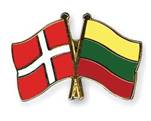
____________________________
COWI to open IT service centre in Vilnius

____________________________
Denmark's Nielsen & Nielsen to hire 40 finance professionals in Kaunas
- Bookmark :
- Digg
- del.icio.us
- Stumbleupon
- Redit it
Russia deploys S-400 missiles in Kaliningrad
- Posted by - (0) Comment
![]()

A Russian newspaper has reported that the military has begun deploying S-400 mobile surface-to-air missiles in Kaliningrad, the Baltic exclave bordered by Poland and Lithuania.
Izvestia cited unnamed military officials as saying the missiles arrived Friday, but did not say how many. The Defense Ministry declined comment on the report.
S-400s, Russia’s most advanced surface-to-air missiles, have a range of 120-400 kilometers (75-250 miles).
The report comes amid rising tension between the U.S. and Russia over Washington’s plans for a missile-shield system in Europe, which Russia contends threatens its own defenses.
- Bookmark :
- Digg
- del.icio.us
- Stumbleupon
- Redit it
- Posted by - (0) Comment
Comments to our article:
The Knights of Lithuania
keep on fighting
Click HERE to read the article
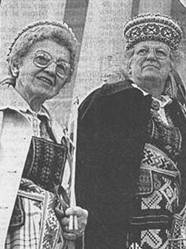
- Bookmark :
- Digg
- del.icio.us
- Stumbleupon
- Redit it
I wrote many letters to our govt in protest about our govt turning Simas Kudirka back to the Russians when he jumped ship
- Posted by - (0) Comment
![]()
There is a Lithuanian consulate in Wash DC. The US had no right to turn him over. IT was good to see him at last in the USA. My family belonged to the Knights of Lithuania in Scranton Pa. Thank you for all you do.
Charlotte Surenko
Note: You can read about the defection of Simas Kudirka HERE
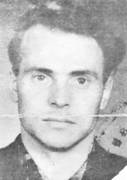
SIMAS KUDIRKA
This photograph was taken
from his Soviet Identification card.
- Bookmark :
- Digg
- del.icio.us
- Stumbleupon
- Redit it
I participated in the late 1940s
- Posted by - (0) Comment
Neat article. I remember the Lithuanian summer festival that I attended w/my mother's mom/stepfather in Luzerne Co in the late 1940's
Albert P Mikutis Jr·
- Bookmark :
- Digg
- del.icio.us
- Stumbleupon
- Redit it
- Posted by - (6) Comment
As long as VilNews exists, there is hope for the future
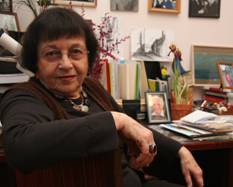 Dr. Irena Veisaite, Chairwoman of the VilNews Honorary Council |
Professor Irena Veisaite, Chairwoman of our Honorary Council, has asked us to convey her heartfelt greetings to the other Council Members and to all readers of VilNews.
“My love and best wishes to all. As long as VilNews exists, there is hope for the future,” she writes. Irena Veisaite means very much for our publication, and we do hereby thank her for the support and wise commitment she always shows. You can read our interview with her HERE. |
- Bookmark :
- Digg
- del.icio.us
- Stumbleupon
- Redit it
- Posted by - (1) Comment
Open letter to Mayor Zuokas from Gene Emmer:
We need playgrounds
in Vilnius Old Town!

Dear Mayor Zuokas,
I live in the Vilnius old town with my wife and young child. We have a small family business and are very happy here. Yet, one thing that concerns us very much is the lack of quality, safe play areas for young children in Vilnius old town. Within the old town there are basically three playgrounds:
Sereikiškės Park: There used to be two play areas. But one was in very bad condition and was removed. The play area which remains is currently the best in the area. But in nice weather it is generally completely full of children.
Vilniaus Gatve: Last year a small wooden park was built near the Šv. Kotrynos Church. It is very simple wooden play area and already needs repairs.
Vokieciu Gatve (behind the Post Office): This is a rundown, playground in very bad condition. It is a night time hangout for drunks and is always full of trash, broken bottles and animal droppings.
As you know, the children of the old town have very few options to walk to recreation, get exercise and breathe fresh air. I was excited to learn recently that you have decided to improve and build several new parks in Vilnius!
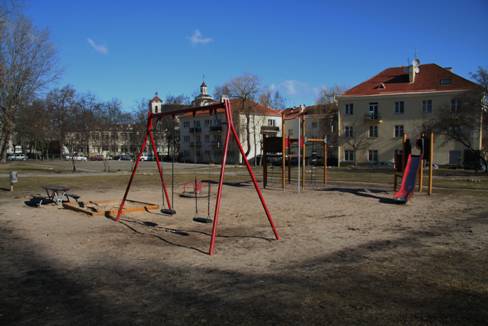
Vokieciu Gatve (behind the Post Office): This is a rundown, playground in very bad condition. It is a night time hangout for drunks and is always full of trash, broken
bottles and animal droppings.

These waste containers are located just 50 meters from the playground at Vokieciu g.. They are a favorite haunt for the homeless and others in search of food residues.
- Bookmark :
- Digg
- del.icio.us
- Stumbleupon
- Redit it
VilNews e-magazine is published in Vilnius, Lithuania. Editor-in-Chief: Mr. Aage Myhre. Inquires to the editors: editor@VilNews.com.
Code of Ethics: See Section 2 – about VilNews. VilNews is not responsible for content on external links/web pages.
HOW TO ADVERTISE IN VILNEWS.
All content is copyrighted © 2011. UAB ‘VilNews’.

 Click on the buttons to open and read each of VilNews' 18 sub-sections
Click on the buttons to open and read each of VilNews' 18 sub-sections 






















.jpg)



